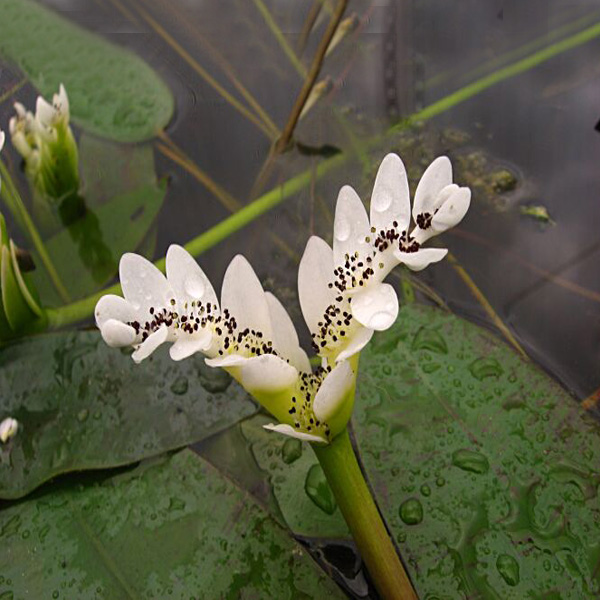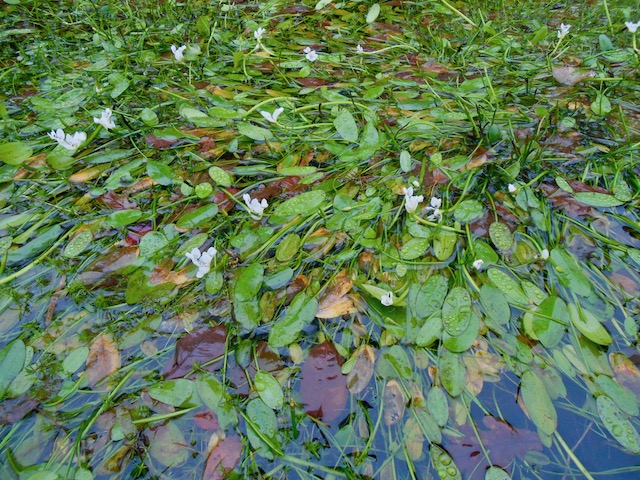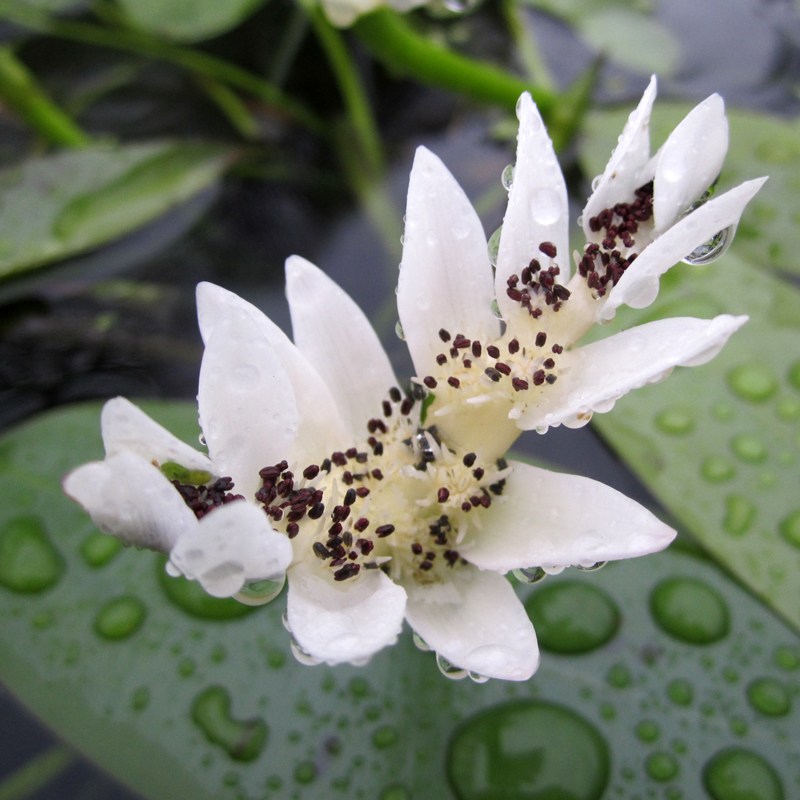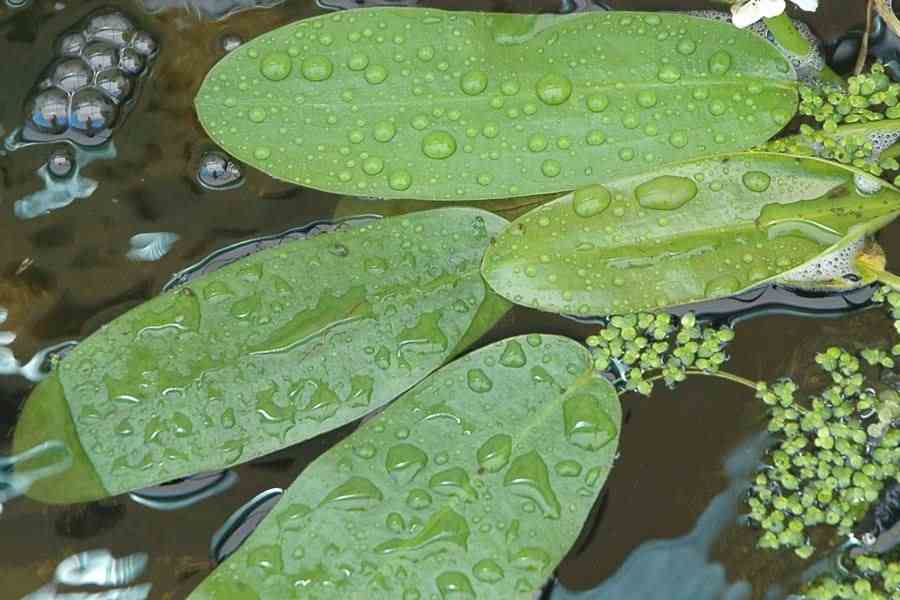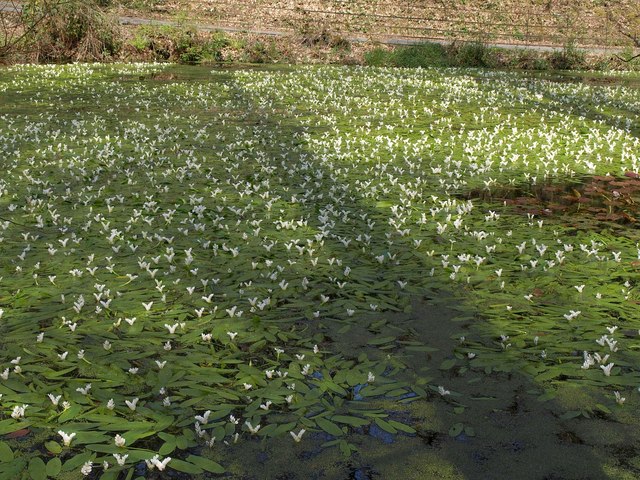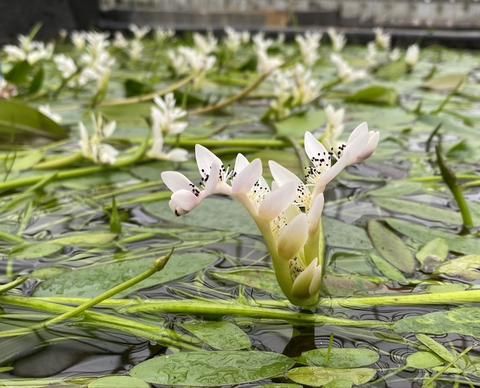Cape Pond Lily
weed identification
Aponogeton distachyos grows in water up to 1.2m deep with roots attached to the substrate, floating oval mottled green and red leaves and attractive and vanilla scented flowers with white petals that extend above the water surface. Flowers often forked giving a characteristic Y shape. Plants also have submerged leaves and large tuberous rootstock.
Prefers slow moving water bodies such as ponds, dams, lakes, and wetlands.
Reproduces by tubers and via seed. Is able to self-seed. May persist in dams or lakes for many years.
Seeds are dispersed by water and waterfowl or by human intervention.
It is widely cultivated in South Africa for its edible buds and flowers, used in the recipe waterblommetjiebredie.
What does Cape Pond Lily look like?
Disadvantages of Cape Pond Lily
Full coverage of a pond or dam by Cape Pond Lily can cause significant problems such as:
- Reduce oxygen diffusion
- Shades out all submerged vegetation preventing further growth and causing death
- Causes fish and other aquatic life death
- Provides breeding ground for mosquitos
- Changes the water chemistry to favour harmful algae and bacteria
- If left untreated, Cape Pond Lily can render the water unusable and make treatment far more costly than if initially dealt with
treatment
AQ200 Aquatic Herbicide + Wetting Agent – Chemical Herbicide designed to kill free floating weeds quickly. Use on mild to severe infestations.
Aquatic Weed Rake – DIY physical removal. Ideal for mild infestations, sensitive water bodies or to aid herbicide treatment.
Aquatic Harvesting – Large amphibious machine that clears the surface of floating aquatic weeds. Book this service for severe infestations or for larger water bodies.
prevention options
Aerating Fountains – Reduces the severity and likelihood of aquatic weed infestations. Use in any body of water.


